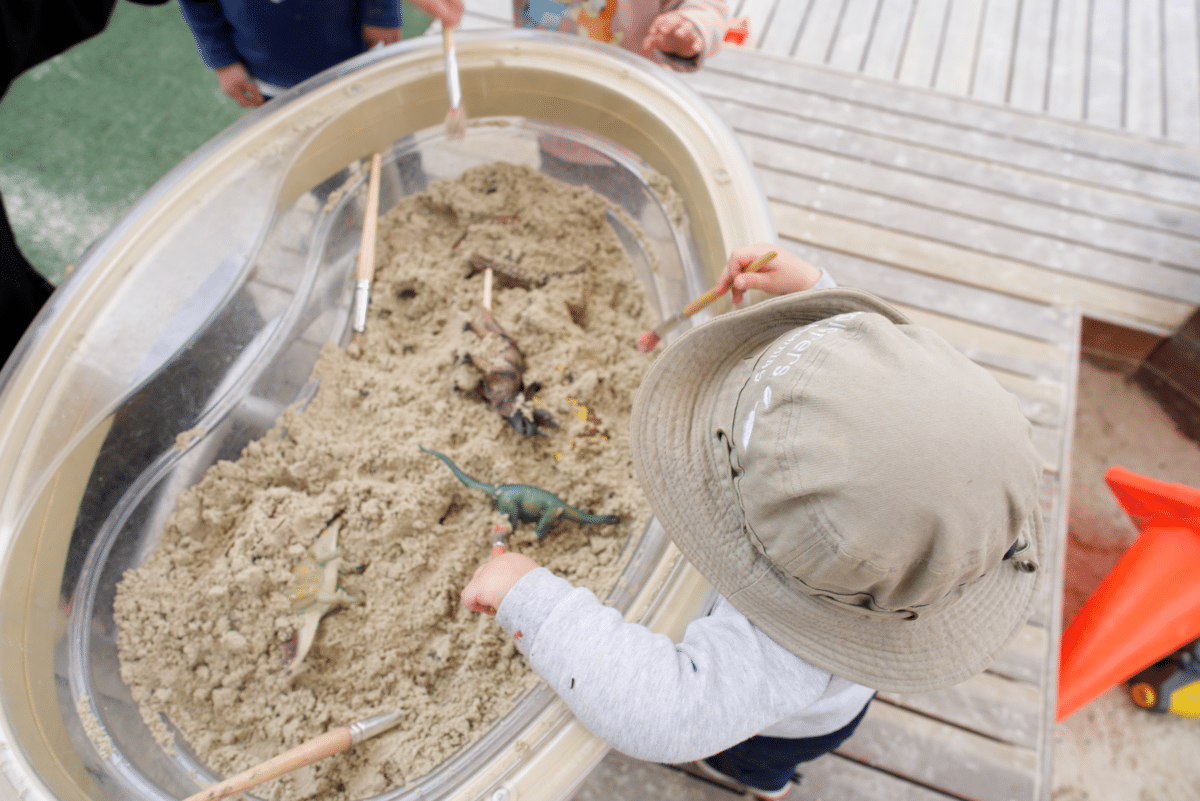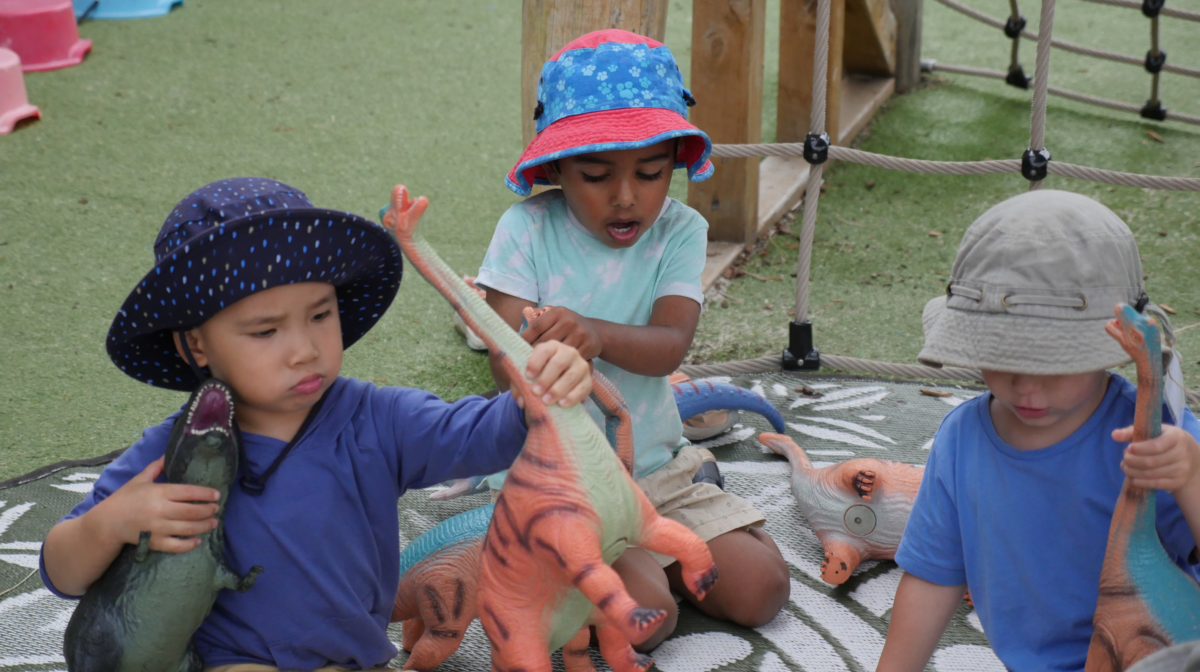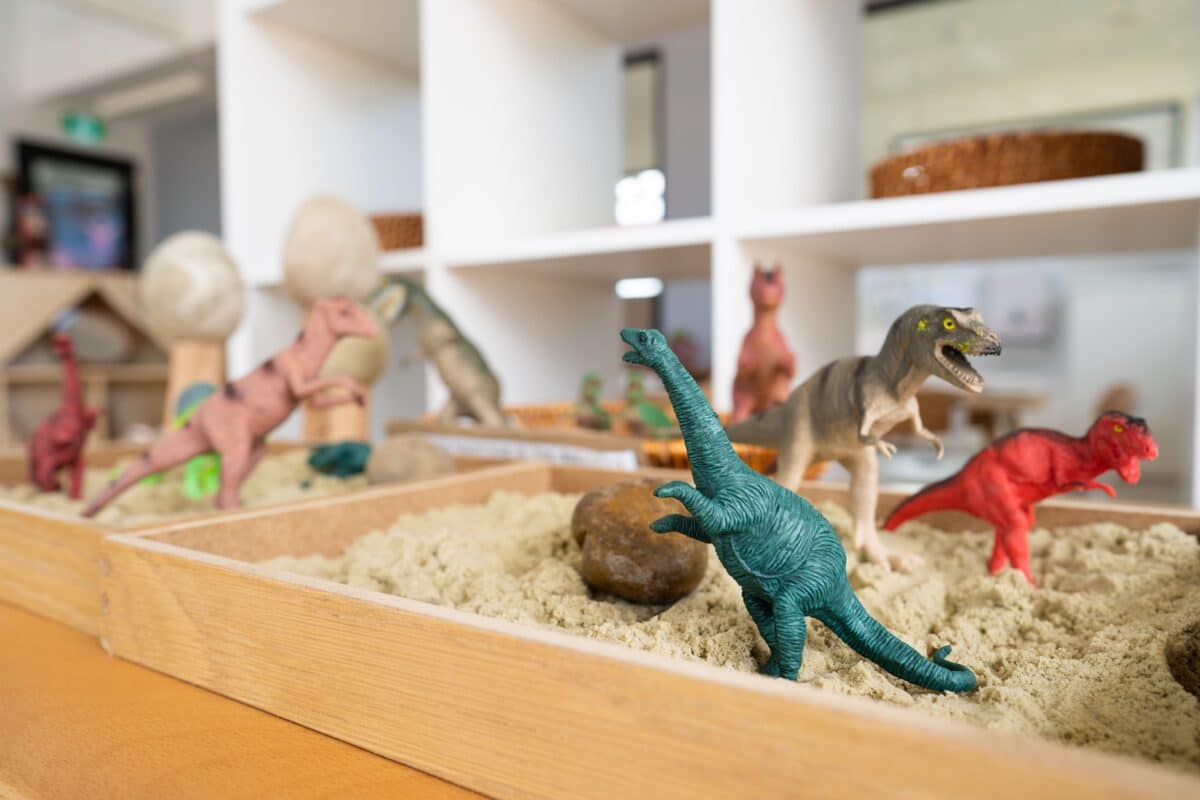Children and the Dinosaur Phase: The Benefits of Fascination
23 June 2023

What is it with children and dinosaurs? No matter the generation, there’s no escaping the dinosaur phase! But have you ever wondered what’s behind it? It may be more important for early childhood development than you think 🦖
Is your child watching The Land Before Time on repeat? If so, they’re probably in the famous ‘dinosaur phase’ – a time when children become obsessed with all things prehistoric.
The dinosaur phase usually begins around age two or three and can last well into primary school. While it might seem like a passing fad that’ll make for some great additions to the photo album, it may also contribute to your child’s creativity and cognitive development.
In this article, we explore all the benefits of the dinosaur phase, even if your living room does become a temporary velociraptor enclosure.
Promotes Curiosity and Exploration
Children in the dinosaur phase are naturally curious about the world around them. They ask the big questions, seek answers, and investigate new ideas. Naturally, this leads to stimulating learning experiences as they read and discover how dinosaurs lived, what they ate, and how they evolved over their 165 million year reign on Earth.
Better yet, it’s a great opportunity for activities and continued learning:
- A trip to the museum
- Digging for fossils in the backyard
- Taking a nature walk
- Imaginative play in a sandpit
This curiosity and exploration can help children develop a lifelong love of learning and an appreciation for science and research.

Enhanced Language Development
As children learn about dinosaurs, they’re exposed to an extensive vocabulary related to science, history, and palaeontology. Although they may not understand all of these phrases, just pronouncing them is a phonetic exercise that may lead to a better understanding of written and spoken words.
Learning to pronounce terms like ‘tyrannosaurus rex,’ ‘herbivore’ and ‘fossilisation’ create new neural pathways and stimulate cognition. This exposure to new words and concepts can help them develop language skills, improve communication, and expand vocabulary.
Make New Friends
If your toddler is going through the dinosaur phase, chances are there are many others in their childcare room, kinder, or family friends on the same journey. You can use this shared fascination to organise playdates for your child to make new friends!
In fact, according to the American Academy of Paediatrics, peer play and games are essential to their early development:
Pretend play encourages self-regulation because children must collaborate on the imaginary environment and agree about pretending and conforming to roles, which improves their ability to reason about hypothetical events.

Sparks Creativity and Imagination
By its very nature, the dinosaur phase requires imaginative play. As dinosaurs no longer exist, they naturally encourage creativity and fascination for children. This is likely because of their likeness to fictional creatures such as dragons.
You can use this fascination to encourage all kinds of creative dinosaur activities. They might draw pictures, build models, or flex their dinosaur muscles by pretending to be a humble brontosaurus or a terrifying t-rex. Likewise, this imaginative play develops creativity and encourages abstract thinking.
Puts Time and History into Perspective
At around age 4-5, children begin to understand that the world existed long before they did. Additionally, they learn that our history is fascinating and complex. Therefore, the dinosaur phase perfectly introduces children to this concept in a fun and accessible way.
Children learn about an entirely different world with its own creatures and ecosystem over 66 million years ago – the number itself enough to spark wonder and awe.
It’s sometimes said that palaeontologists are grownups that never grew out of the dinosaur phase. An early fascination with science can lead to careers in archaeology, geology, meteorology, and environmental sciences!

Promotes a Love of Nature and the Environment
As children learn about dinosaurs, they also learn about the environment they lived in and the impact that humans have on the planet today. This can help them develop a sense of responsibility for the natural world and a desire to preserve it.
Overall, the dinosaur phase is so much more than just a passing fad. It’s an opportunity for your child to express their creativity, independence, and foster a lifelong love of science and the natural world. So be sure to encourage their interest in dinosaurs by reading books, visiting museums, and engaging in imaginative play. Who knows, your child might grow up to discover the next dinosaur species.
🍃 To tour one of our beautiful Centres, please click here. Otherwise, check out our website to register your interest at Explorers Early Learning today!